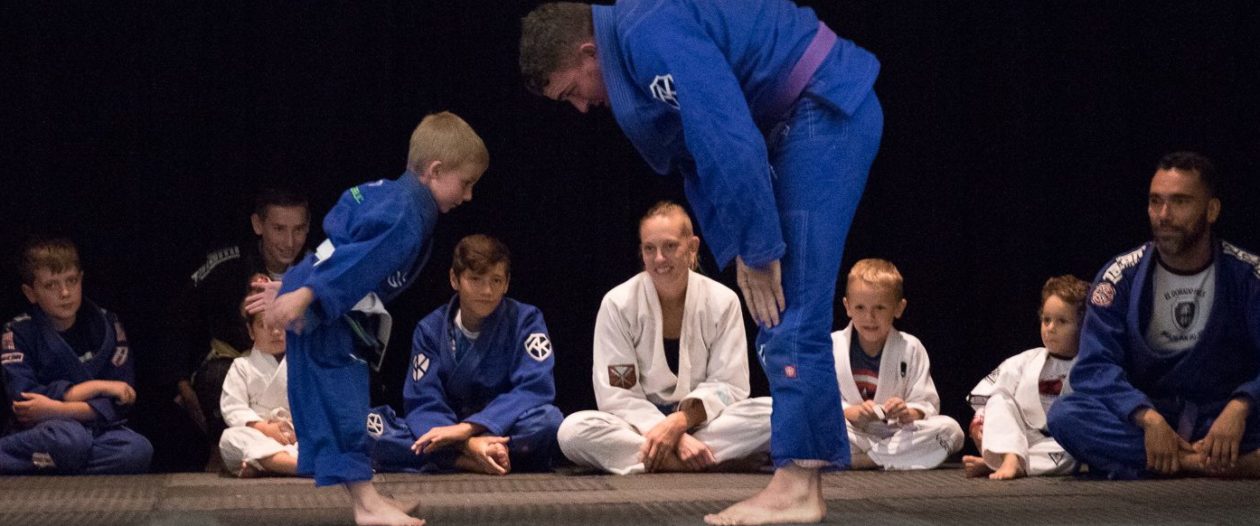In the world of Brazilian Jiujitsu (BJJ), it’s easy to fall into the trap of comparing your skills to those of your peers. With each roll, every sparring session, and every competition, we often measure our success by how well we perform against others. However, true mastery and fulfillment in Jiujitsu come from a different approach: evaluating your skills and progression over time, rather than through the lens of comparison with another practitioner.
The Pitfalls of Comparison
Comparison can be a double-edged sword. On one hand, it can push you to train harder and strive for improvement. On the other hand, it can also lead to frustration, self-doubt, and even burnout. Here’s why relying too heavily on comparison can be detrimental:
- Varied Journeys: Everyone’s path in Jiujitsu is unique. Factors like natural talent, physical attributes, training frequency, and personal circumstances all influence progression. Comparing yourself to someone who may have started at a different time or under different conditions can skew your perception of your own growth.
- Short-Term vs. Long-Term Progress: BJJ is a marathon, not a sprint. Short-term comparisons may overlook the gradual and significant improvements you’ve made over months and years. Progress can be slow and incremental, making it crucial to keep the long-term perspective in mind.
- Psychological Toll: Constantly measuring yourself against others can create unnecessary mental stress. This stress can affect your enjoyment of the sport and hinder your overall development. Jiujitsu should be a source of joy and personal growth, not a constant source of anxiety.
The Benefits of Self-Evaluation
Focusing on your personal progression over time offers numerous advantages:
- Personal Growth: By evaluating your skills based on your previous performance, you can clearly see your own improvement. This personal growth is more satisfying and sustainable than trying to match someone else’s achievements.
- Goal Setting: Self-evaluation helps you set realistic, personalized goals. Whether it’s mastering a specific technique, improving your endurance, or simply becoming more confident on the mat, setting and achieving your own goals fosters a sense of accomplishment.
- Resilience and Motivation: Tracking your progress over time can keep you motivated, especially during plateaus. Recognizing how far you’ve come can reignite your passion and commitment to the sport, helping you push through challenging times.
- Positive Mindset: Cultivating a growth mindset, where you focus on learning and improvement rather than winning or losing, creates a more positive training environment. This mindset encourages experimentation, learning from mistakes, and ultimately becoming a more well-rounded practitioner.
How to Evaluate Your Progress
To illustrate how you can measure progress over time in an individual sport, let’s look at examples from swimming and running.
Swimming:
- Time Trials: Record your times for various distances. Over time, you’ll be able to see improvements in your speed.
- Technique Analysis: Video your strokes and analyze your form. Small adjustments can lead to significant performance gains.
- Endurance Tests: Measure how long you can maintain a specific pace. Increased endurance is a clear sign of progress.
Running:
- Pace Tracking: Use a GPS watch or smartphone app to track your pace per mile. Over weeks and months, you should see your average pace improve.
- Distance Goals: Set incremental distance goals. If you started running 5Ks, challenge yourself with a 10K or a half-marathon.
- Consistency Metrics: Track how frequently you run and for how long. Increasing the consistency and duration of your runs can indicate better fitness and discipline.
Jiujitsu can adopt similar metrics to analyze personal progress:
- Keep a Training Journal: Document your training sessions, techniques learned, and personal reflections. Over time, you’ll be able to look back and see the progress you’ve made.
- Record and Review: Video your rolls and sparring sessions. Watching these videos can provide insights into areas where you’ve improved and aspects that need more work.
- Set Milestones: Establish short-term and long-term goals. Celebrate small victories along the way, as these are stepping stones to larger achievements.
- Seek Feedback: Regularly ask your coaches and training partners for feedback. Constructive criticism from others can help you see your progress from a different perspective and identify areas for improvement.
- Self-Reflection: Take time to reflect on your BJJ journey. What have you learned? How have you grown, both on and off the mat? Self-reflection is a powerful tool for personal development.
In Brazilian Jiujitsu, the true measure of success is not how you compare to others, but how you evolve over time. Embrace your unique journey, focus on your own progression, and celebrate your personal achievements. By doing so, you’ll find greater fulfillment, resilience, and joy in the gentle art of Jiujitsu. Remember, the only person you need to be better than is the person you were yesterday.
